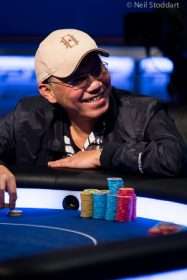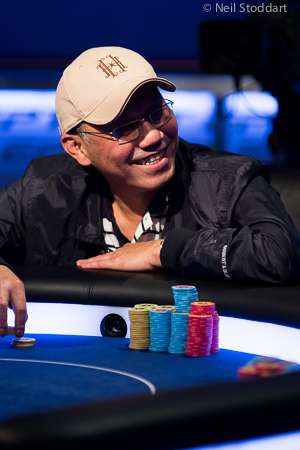April Trial Date Set in Paul Phua Sports Betting Prosecution
Following an intense exchange of motions, objections and evidentiary hearings in the illicit sports betting case centered on Malaysian gambling kingpin Wei Seng “Paul” Phua, a US magistrate judge has assigned an April, 2015 trial date for the case’s two remaining defendants.
Magistrate Judge Peggy Leen announced that the case will begin at 9:00 am on April 13, 2015, before US District of Nevada Judge Andrew P. Gordon. Pre-trial matters will be handled in the days preceding the official start of the trial, with a court call scheduled for the morning of April 8.
Judge Gordon, who takes over the case following the handling of evidentiary matters by Magistrate Judge Leen, will likely be forced to rule on ongoing objections regarding both the admissibility and availability of evidence in the case. Attorneys for both sides have filed continuing objections in the high-profile case. Paul Phua and his son Wei Kit “Darren” Phua are the final two of the case’s original eight defendants whose legal fate has yet to be determined. Five of the other six defendants pled guilty to gambling-business charges, paid significant fines and were deported from the US, while charges against a sixth defendant were dismissed.
The case against the Phuas, father and son, represents the most complex of all the prosecutions in the case. The high-rolling pair, central figures in the high-stakes Macau poker cash games in recent years, were arrested in one of three private villas at Caesars Palace in Las Vegas last July. However, the villa occupied by the Phuas was not directly linked to the “boiler room” sports-betting business being actively run outof two other suites, though authorities have continued to assert that the Phuas were intrinsically involved in the group’s activities.
However, numerous irregularities in how state and federal FBI agents conducted their investigation soon emerged, including the falsification of some evidence. Magistrate Judge Leen recently ruled that some of the evidence obtained against both Paul and Darren Phua must be suppressed. In Paul Phua’s case, it was in large part because arresting agents never read him his Miranda rights. In son Darren’s case, partial suppression was ordered as a result of the evidence being the proverbial “fruit of the poisoned tree.”
Since the magistrate judges and findings are technically “recommendations” which must again be ruled on by District Judge Gordon by April, both sides are continuing to push their respective cases. On Wednesday, federal prosecutors Daniel G. Bogden, Kimberly M. Frayn and Phillip N. Smith, Jr. filed three separate objections protesting Judge Leen’s recommended suppression of evidence, including dozens of exhibits stretching to several hundred pages of evidence.
On the defense side, the Phua’s powerful legal counsel, including David Chesnoff, Thomas Goldstein and Richard Schonfeld, have filed a continuing objection over the government’s failure to provide all background material — including draft affidavits and e-mails — associated with the search warrants that were eventually executed against the defendants. Magistrate Leen initially ruled against the defense on that matter, though the issue is certain to be revisited in Judge Gordon’s court.
The case’s international prominence guarantees that its outcome will be watched closely. An interesting side story has also returned to the news in recent days, with a former high-ranking Malaysian law enforcement official recently asserting that a high-ranking Malaysian official who wrote a letter to the FBI disclaiming Paul Phua’s possible connections to Asian organized crime may have broken Malaysian law in doing so.
The former chief of the Kuala Lumpur, Malaysia CID (Criminal Investigation Department), Mat Zain Ibrahim, recently went on record as accusing Malaysian Home Minister Ahmad Zahid Hamidi of breaking Malaysian law in connection with the Phua case. Mat Zain stated that Hamidi broke Malaysia’s Official Secrets Act (OSA), by writing to a prominent DBI deputy chief and stating that Phua was not a member of the “14K Triad” organized-crime group, and that Phua was also involved in providing valuable information to the Malaysian government.
The letter was submitted into the Phuas’ American case by the pair’s defense attorneys, then later withdrawn under pressure from the US government. News of the Malaysian minister’s letter was first published by the South China Morning Post.
Wrote Mat Zain, as reported by the Malaysia Chronicle, “Zahid and Shafee [Phua’s Malaysian lawyer, Shafee Abdullah], in questioning the validity of the Paul Phua record that the police furnished to the FBI in 2008, can cause the FBI and Interpol to doubt the legitimacy of other information that has and will be furnished to the international bodies.”





















COMMENTS